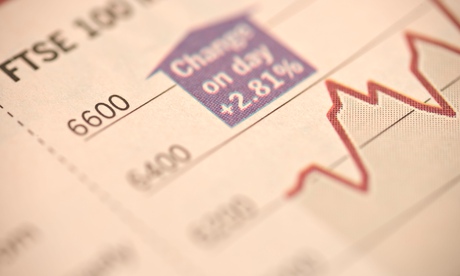
When Steve Cook broke his wrist it meant he had to take time off work – but that gave him the opportunity to sort through some of his old files and paperwork. He had emigrated from the UK to Sydney in 1989 and among his boxes of stuff he came across a certificate dated July 1989 saying he owned 100 Abbey National shares. Could they, he wondered, still be worth anything.
“I was looking through old files of paper and found this old share certificate,” he says. “I thought they were not valuable at the time (they had a face value of only £10) so I just tucked them away with a bunch of other official papers – my wife and I had been getting ready to emigrate to Australia at the time. Looking online on Guardian Money I could see that Abbey National was taken over by Spanish bank Santander in 2004 so I am now wondering if my Abbey shares are still valid and worth anything, in which case how do I sell them. Or should I just junk them?”
We put Cook’s question to Santander, one the bank says it only hears rarely since it has been more than 10 years since its takeover of Abbey.
The quick answer is that Abbey National plc share certificates are no longer valid – Abbey’s shares were cancelled and ceased trading on the London Stock Exchange after Santander took over Abbey in November 2004. But the good news for Cook is that he is still likely to be due about £460.
“It would be a lovely surprise because I never really thought of them as being worth anything,” he says. “It would be like getting a jacket out of a wardrobe that you haven’t worn for ages and finding a £50 note in the inside pocket.”
When Santander acquired Abbey its 1.71 million private shareholders became entitled to one Santander share, traded in euros on the Madrid Stock Exchange, for each ordinary Abbey share they held.
However Santander, like nearly all quoted companies, no longer issues certificates. Instead the shares are held in electronic format.
If former Abbey shareholders find an old certificate they should email the Santander Nominee Service at grupo.santanderenquiries@equiniti.com or call 0871 384 2000, or +44 (0) 121 415 7188 if calling from overseas. Make sure you have all the addresses you have lived at since the date on the certificate so the service can investigate further.
A spokesperson for Abbey explains: “All shareholders at the time of completion of the transaction automatically received new Santander shares so there are no unclaimed entitlements, only holdings where contact may have been lost with a shareholder, due to them not keeping their registered details up to date.”
This is likely to be what happened in Cook’s case. Provided Santander establishes the shares have not been sold at any time in the past, the shares plus any uncashed Santander dividends accrued in the interim will still be held by the nominee service on his behalf.
“If someone has 100 shares they would be worth approximately £460, though this depends on the daily share price,” a spokesperson says.
So how do you cash them in? First, try Santander Sharedealing on 0800 169 2001 or, if held in the Santander Nominee Service, they can be sold by post, phone or online through Shareview Dealing. They may also be sold using a stockbroker or high street bank with a share dealing facility. It is not unusual to come across old UK share certificates, particularly when sorting through financial papers belonging to elderly relatives.
The first thing to do is to find out if the company on the share certificate is still trading. To do this, type in the company name in the search box on the London Stock Exchange Group (LSEG) website (londonstockexchange.com). The difficulty with old share certificates, however, is that the company may have gone bust, changed its name or been taken over. LSEG suggests the best way to see whether a shares certificate is still valid and worth selling is to consult a stockbroker.
“It will cost you a small fee but, if there is money to be made from them, a stockbroker should help,” it says.
Another way to check on a share certificate’s validity is to contact the company registrars whose name should be written on the certificate. Companies use registrars to keep a record of who owns their shares. The registrars keep lists of all the registered owners and they can trace ownership back, sometimes for many years. They can also often help investors by tracing the history of the company and finding out whether it has changed name, gone bankrupt, merged with another company or been taken over.
If you cannot trace the registrar named on your share certificates (maybe they too have changed names or gone out of business), the LSEG suggests you contact one of the UK’s three main registrars who may be able to help. These are: Equiniti (equiniti.com), 0871 384 2030; Capita (capita.co.uk), 0871 664 0300; and Computershare (computershare.com), 0870 702 0003.







